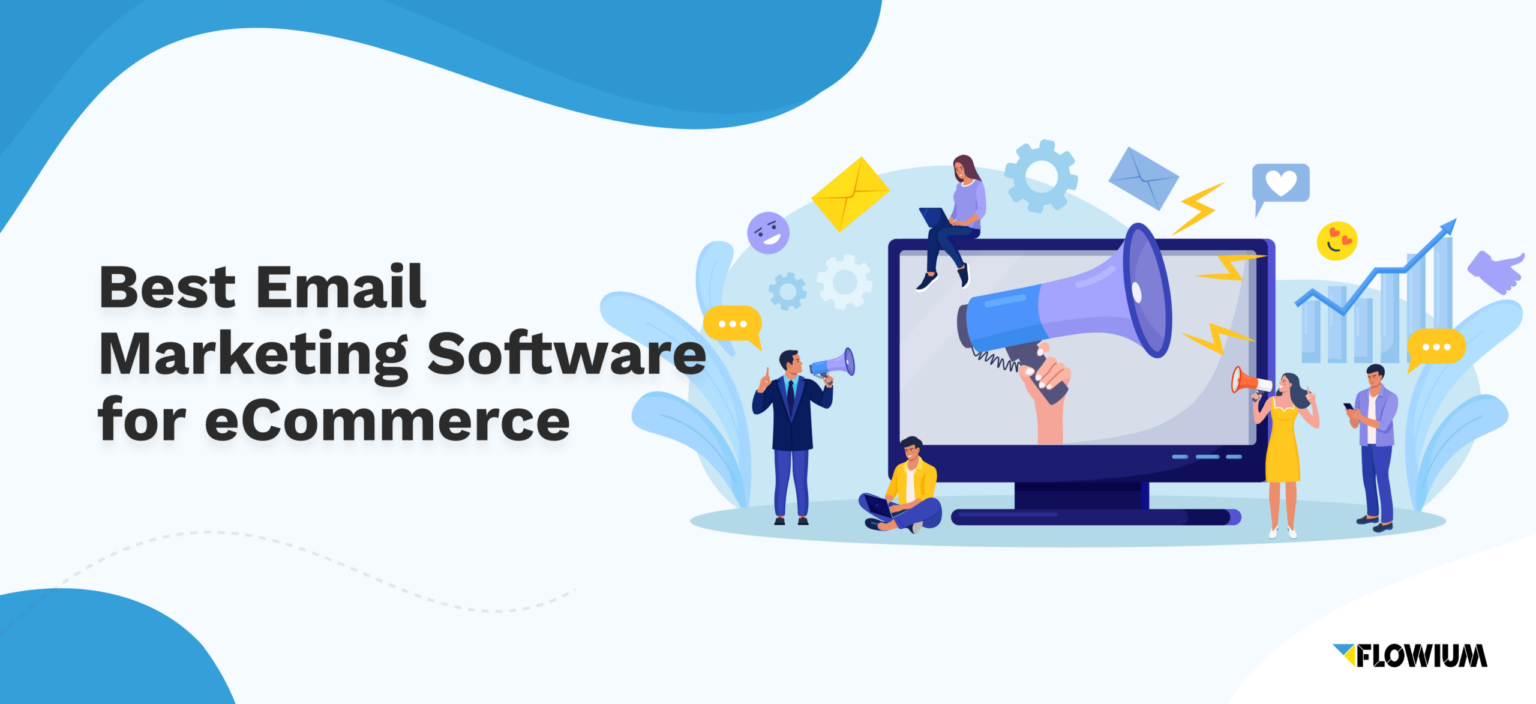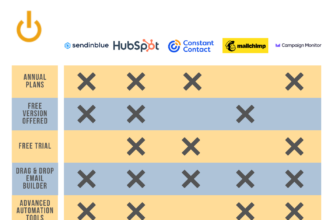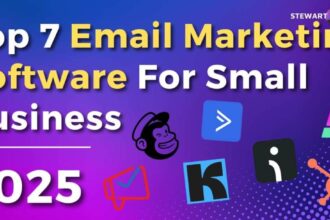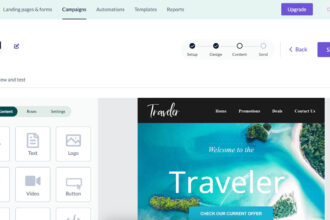Email marketing is vital for ecommerce businesses. It helps build relationships and drive sales.
In the crowded world of ecommerce, standing out can be tough. Email marketing software offers a powerful solution. These tools allow you to reach customers directly in their inbox. You can send personalized messages, promotions, and updates. This direct communication boosts engagement and loyalty.
With the right software, managing email campaigns becomes easy and effective. Whether you are a small business or a large retailer, the right email marketing software can make a big difference. In this blog post, we will explore the best options available, helping you choose the right tool for your ecommerce needs. Stay tuned to discover how you can enhance your email marketing strategy.
Introduction To Email Marketing Software
Email marketing software plays a vital role in the success of ecommerce businesses. It helps in reaching potential customers, retaining existing ones, and driving sales. This article explores the importance and key benefits of using email marketing software for ecommerce.
Importance For Ecommerce
Email marketing software is essential for ecommerce due to its ability to target specific customer segments. It allows businesses to send personalized messages to customers. This increases the chances of engagement and conversion.
Additionally, email marketing helps in building and maintaining customer relationships. Regular updates, special offers, and personalized content keep customers engaged. This leads to repeat purchases and customer loyalty.
Key Benefits
Using email marketing software offers numerous benefits:
- Personalization: Create personalized content for each customer.
- Automation: Automate campaigns to save time and ensure timely delivery.
- Segmentation: Segment customers based on their behaviors and preferences.
- Analytics: Track open rates, click-through rates, and conversions.
- Cost-effective: Reach a large audience at a low cost.
These benefits make email marketing software a valuable tool for any ecommerce business. It not only helps in driving sales but also improves customer satisfaction and loyalty.
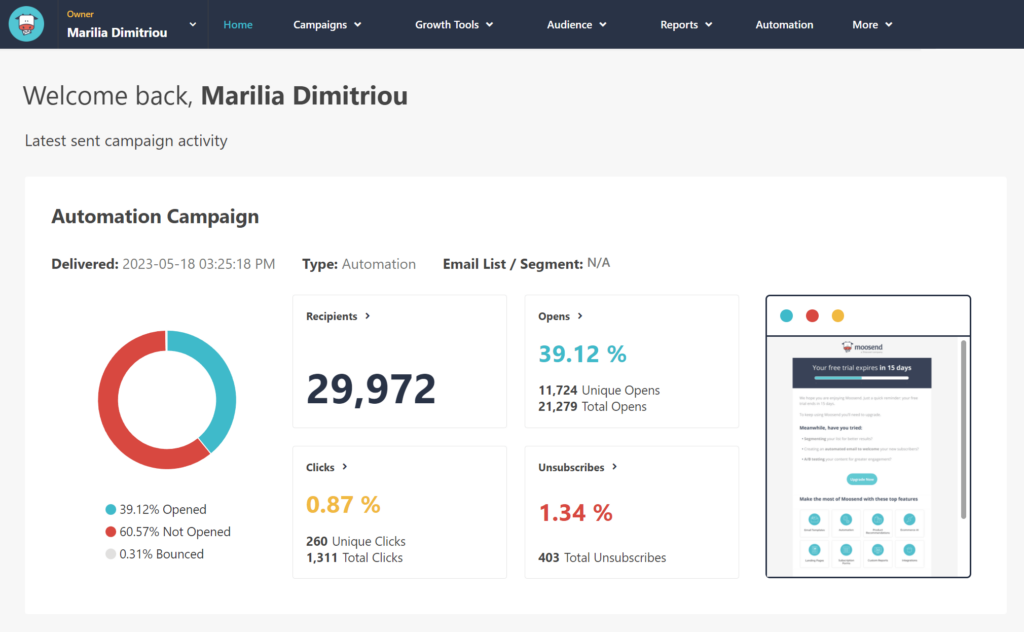
Credit: moosend.com
Choosing The Right Software
Finding the best email marketing software for your ecommerce business can be challenging. The right software will help you engage with customers and boost sales. It can automate tasks, segment your audience, and provide valuable analytics.
Features To Look For
When selecting email marketing software, focus on features that align with your business goals. Look for automation capabilities. This will save time and ensure timely communication.
Segmentation is another key feature. It allows you to send targeted messages to different customer groups. Personalized emails often result in higher engagement rates.
Analytics and reporting tools are also essential. They help track the performance of your campaigns. With these insights, you can make data-driven decisions to improve future emails.
Integration with your ecommerce platform is crucial. It ensures a seamless workflow and better data management. Make sure the software can connect with your existing tools.
Top Platforms
Several email marketing platforms cater to ecommerce businesses. Mailchimp is a popular choice. It offers user-friendly tools and extensive integration options.
Another excellent platform is Klaviyo. It specializes in ecommerce and provides powerful automation and segmentation features.
Constant Contact is also worth considering. It offers a variety of templates and robust customer support.
Omnisend is another great option. It focuses on ecommerce and provides comprehensive automation workflows.
Each of these platforms has unique strengths. Evaluate your specific needs to choose the best fit for your business.
Personalization And Segmentation
Email marketing software for ecommerce has evolved significantly. Personalization and segmentation are now essential for effective campaigns. They help businesses create targeted messages. These messages resonate better with customers, leading to higher engagement and sales. Below, we explore the importance of customer segmentation and personalized campaigns.
Customer Segmentation
Customer segmentation involves dividing your email list into smaller groups. These groups share similar characteristics or behaviors. This process allows for more targeted marketing. You can segment customers based on various factors:
- Demographics: Age, gender, income level
- Geographic location: Country, city, region
- Purchase history: Past purchases, frequency of purchases
- Behavioral data: Website activity, email engagement
By segmenting your audience, you can send relevant content to each group. This increases the likelihood of engagement and conversions.
Personalized Campaigns
Personalized campaigns take customer segmentation a step further. They use specific data to tailor each email to the individual recipient. Here are some ways to personalize your emails:
- Use the recipient’s name in the subject line and email body.
- Recommend products based on past purchases or browsing history.
- Send birthday or anniversary emails with special offers.
- Customize content based on customer preferences and behaviors.
Personalized emails create a stronger connection with the recipient. They feel valued and understood, which can lead to higher engagement rates.
Email marketing software often includes tools for both segmentation and personalization. This makes it easier to create effective campaigns. Investing in such software can be a wise decision for ecommerce businesses. It helps drive sales and improve customer satisfaction.

Credit: www.seguno.com
Automation And Workflows
Email marketing software is a powerful tool for ecommerce businesses. Automation and workflows make email campaigns more efficient. They save time and ensure timely communication with customers. These features help manage tasks without manual intervention. Let’s explore how to set up automation and effective workflows.
Setting Up Automation
Setting up automation involves defining triggers and actions. Triggers are events that start the automation process. Actions are tasks performed after a trigger. Common triggers include new subscriptions and purchases. Actions can be sending welcome emails or order confirmations.
Most email marketing software offers templates for automation. These templates simplify the setup process. They provide predefined workflows that are easy to customize. You can add or remove actions based on your needs. Testing your automation ensures it works correctly. Adjustments may be needed for optimal performance.
Effective Workflows
Effective workflows keep customers engaged. They guide them through the buying journey. Welcome sequences are a good example. They introduce new subscribers to your brand. Follow-up emails remind customers about abandoned carts. These reminders can increase conversions.
Another effective workflow is post-purchase follow-ups. They thank customers for their purchase. They also ask for feedback or reviews. This keeps your brand in the customer’s mind. Birthday and anniversary emails add a personal touch. They make customers feel valued. Regular engagement through these workflows builds loyalty.
Segmenting your audience improves workflow effectiveness. Different segments receive tailored messages. This makes your emails more relevant. Relevance leads to higher open and click rates. Use data and analytics to refine your workflows. Continuous improvement ensures better results.
Designing Engaging Emails
Email marketing is crucial for eCommerce success. Creating engaging emails can help boost sales and customer loyalty. Well-designed emails make your content more attractive and effective. Let’s look at how to design engaging emails.
Template Design
Your email template sets the stage. It’s the first thing your customers see. A clean, simple design works best. Use colors that match your brand. Make sure your template is mobile-friendly. Most people read emails on their phones.
Here are some tips for a great template:
- Header: Include your logo and a clear message.
- Body: Use readable fonts and enough white space.
- Footer: Add your contact info and social media links.
A well-designed template makes your email look professional. It helps build trust with your customers.
Compelling Content
The content of your email is key. It must grab attention and keep it. Start with a strong subject line. It should be short and catchy. Use action words to create urgency.
Here are some elements of compelling content:
- Personalization: Use the customer’s name.
- Clear Message: Be direct about what you are offering.
- Call to Action (CTA): Tell them what to do next. Make the CTA button stand out.
Include images and videos to make your emails more engaging. Visual content can explain your message better. Keep your text short and to the point. Use bullet points for easy reading.
Here is a simple table to summarize:
| Element | Tips |
|---|---|
| Header | Include logo and clear message |
| Body | Readable fonts, enough white space |
| Footer | Contact info and social media links |
| Personalization | Use customer’s name |
| Clear Message | Be direct and concise |
| CTA | Use action words, make button stand out |
By following these tips, you can create engaging emails. They will help you connect with your customers and grow your eCommerce business.
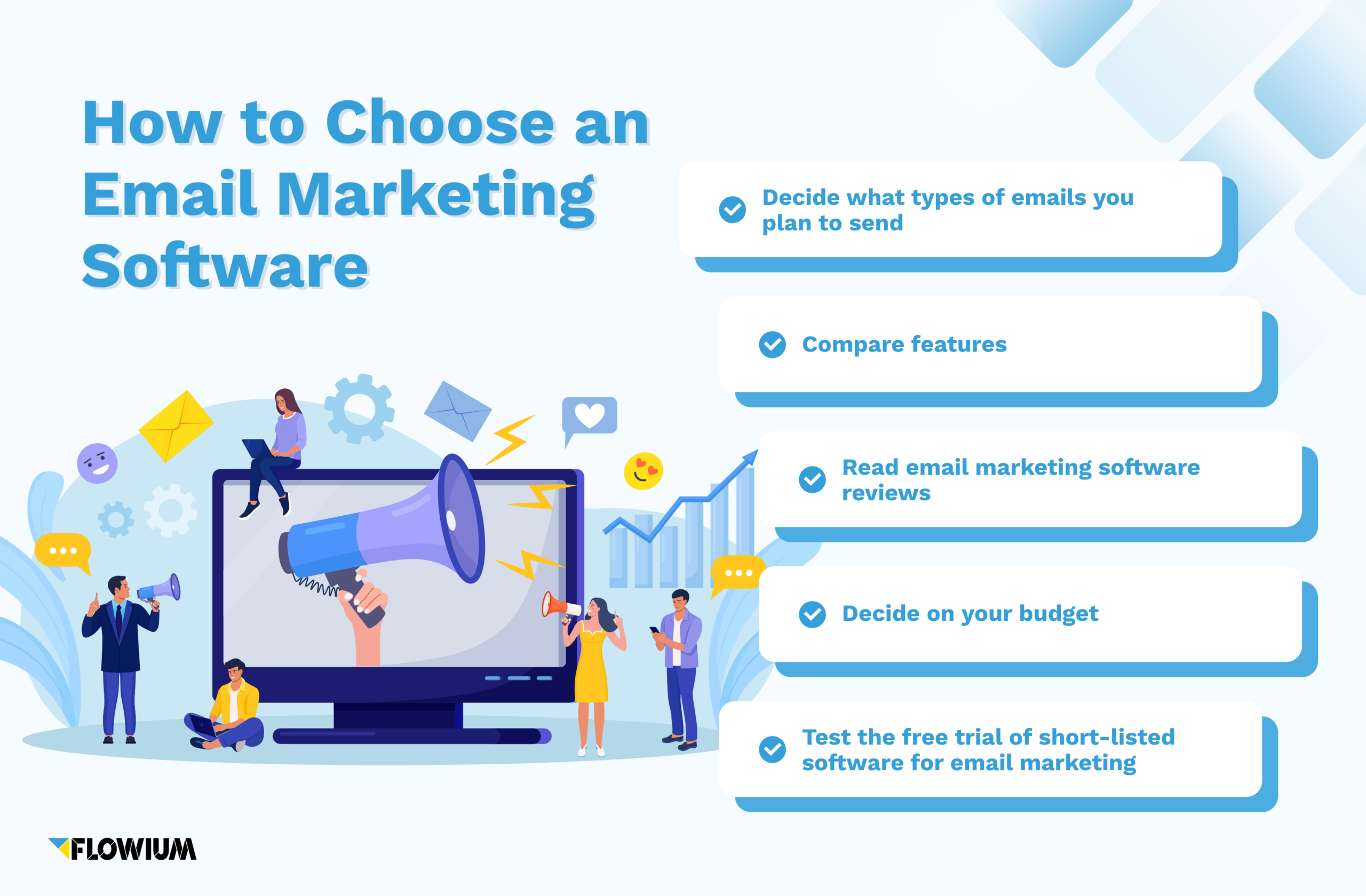
Credit: flowium.com
Analyzing Performance
Analyzing performance is crucial in email marketing for ecommerce. It helps businesses understand what works and what doesn’t. With the right tools, you can track important metrics and improve your campaigns.
Key Metrics
Tracking key metrics gives insight into your campaign’s effectiveness. Metrics like open rate, click-through rate, and conversion rate are essential. They show how many people open your emails, click on links, and make purchases. Bounce rate and unsubscribe rate tell you if your content needs improvement.
Improving Campaigns
Improving campaigns is an ongoing process. Use data from your key metrics to make informed changes. Test different subject lines, email designs, and call-to-actions. Segment your audience based on their behavior and preferences. Send personalized emails to increase engagement and conversions.
Integrating With Ecommerce Platforms
Integrating your email marketing software with your ecommerce platform can greatly enhance your business operations. This integration allows for automated workflows, accurate data synchronization, and personalized customer experiences. It ensures that your marketing campaigns are timely, relevant, and effective.
Seamless Integration
Seamless integration between email marketing software and ecommerce platforms is crucial. It ensures that data flows smoothly between the two systems. Customer information, purchase history, and preferences are automatically synced. This reduces manual work and minimizes errors.
With seamless integration, you can segment your audience better. You can send targeted emails based on customer behavior. This leads to higher engagement rates. A smooth integration also means that your email campaigns are more timely. You can respond to customer actions immediately.
Enhanced Functionality
Integrating your email marketing software with your ecommerce platform brings enhanced functionality. You can automate welcome emails, abandoned cart reminders, and post-purchase follow-ups. These automated emails can increase sales and customer retention.
You can also track customer interactions and purchase behaviors. This data helps you create personalized recommendations and offers. Your email content becomes more relevant to your audience. Enhanced functionality also includes detailed analytics. You can measure the success of your campaigns easily.
Overall, integrating email marketing software with your ecommerce platform is essential. It streamlines your marketing efforts and enhances customer experience.
Case Studies And Success Stories
Understanding how other ecommerce businesses use email marketing software can be very helpful. Here, we share some success stories and case studies. These examples show how effective email marketing can boost sales and customer engagement.
Successful Campaigns
Many ecommerce businesses have seen great results with email marketing. Let’s look at a few successful campaigns:
| Company | Campaign | Results |
|---|---|---|
| Company A | Holiday Sale | Increased sales by 30% |
| Company B | New Product Launch | Boosted website traffic by 50% |
| Company C | Customer Retention | Improved repeat purchase rate by 20% |
Lessons Learned
From these campaigns, we can gather some important lessons:
- Segment your email list – Target specific groups for better results.
- Personalize your emails – Use customer names and tailor content.
- Test and optimize – A/B test subject lines and email content.
- Track performance – Use analytics to measure success and adjust strategies.
These case studies and lessons offer valuable insights for any ecommerce business. By applying these strategies, you can enhance your email marketing efforts.
Frequently Asked Questions
What Is The Best Email Marketing Software For Ecommerce?
The best email marketing software for ecommerce includes platforms like Mailchimp, Klaviyo, and Constant Contact. These tools offer features tailored for online stores, such as automation, analytics, and segmentation to boost sales.
How Can Email Marketing Increase Ecommerce Sales?
Email marketing can increase ecommerce sales by targeting customers with personalized offers, abandoned cart reminders, and product recommendations. It helps maintain customer engagement and drives repeat purchases.
Is Email Marketing Cost-effective For Small Ecommerce Businesses?
Yes, email marketing is cost-effective for small ecommerce businesses. It offers high ROI and affordable pricing plans. Many platforms provide scalable options that grow with your business.
What Features Should Ecommerce Email Software Have?
Ecommerce email software should have features like automation, segmentation, templates, analytics, and integrations with your ecommerce platform. These features help in effectively managing and optimizing your email campaigns.
Conclusion
Choosing the right email marketing software boosts your ecommerce success. It helps connect with customers effectively. Automated emails save time and effort. Personalized messages increase engagement and loyalty. Analytics provide insights for better strategies. With the right tools, you can build strong customer relationships.
Your ecommerce business can grow steadily and sustainably. Explore different options and find the best fit. Happy emailing!







